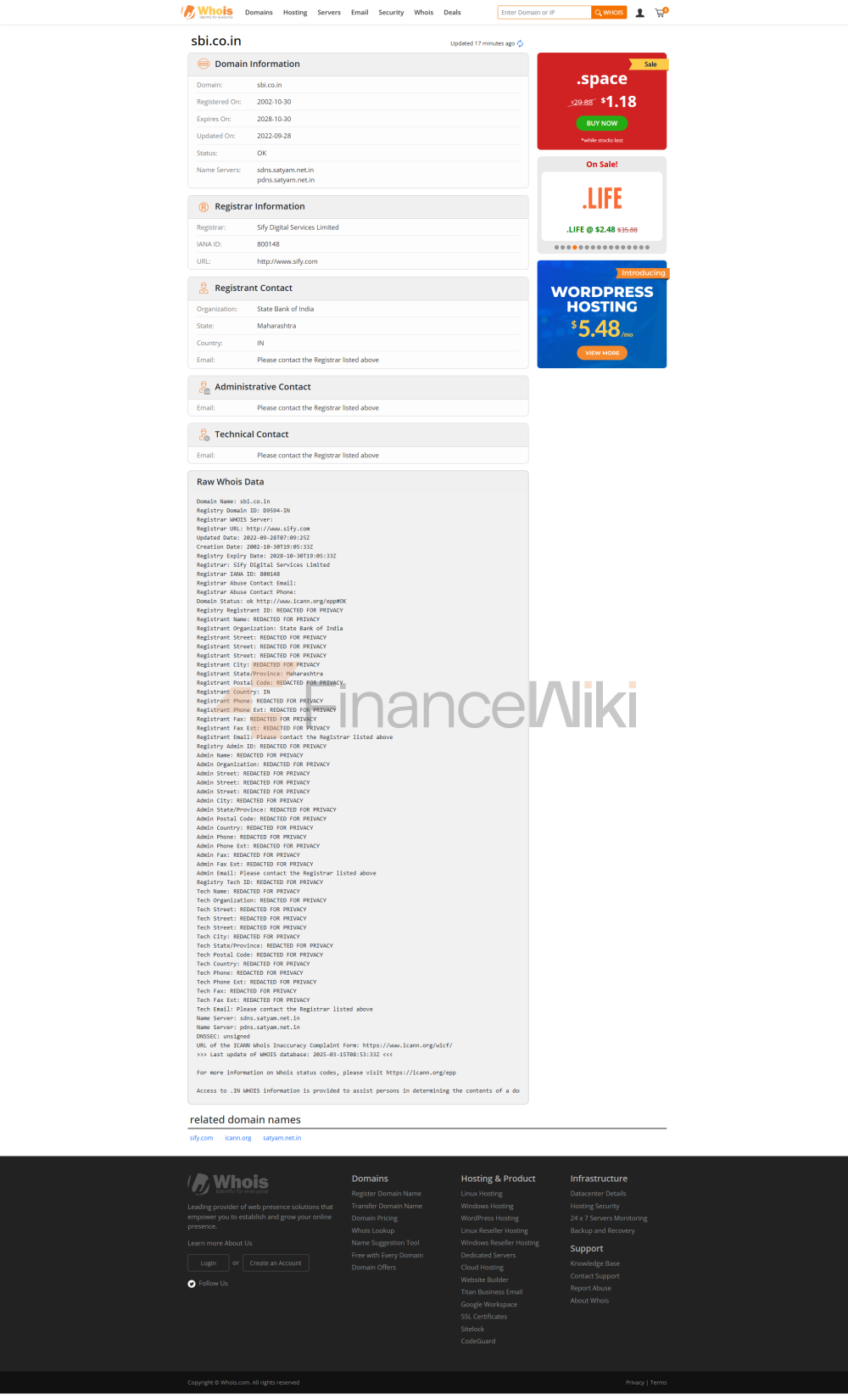After A Detailed Inquiry: State Bank Of India (SBI) Is One Of The Oldest Banks In India, And Its Foreign Exchange Business Has Been Operating As Part Of The Bank For Many Years.
SBI's Predecessor Was Bank Of Calcutta, Which Was Established In 1806. After Several Mergers And Restructurings, It Was Officially Renamed State Bank Of India In 1955.
The Bank's Business Covers A Variety Of Financial Services, Including Foreign Exchange Transactions, International Remittances, Foreign Currency Loans, And Trade Financing.
The Following Are The Bank's Services And Their Specific Introduction:
Foreign Exchange Services:
SBI Offers A Wide Range Of Foreign Exchange Services, Including Foreign Exchange Transactions, International Remittances, Foreign Currency Loans, And Trade Finance, Among Others.
They Provide Foreign Exchange And Hedging Products For Individual And Corporate Clients To Manage Foreign Exchange Risk.
Foreign Exchange Trading:
SBI's Foreign Exchange Trading Department Provides Clients With Real-time Exchange Rate And Foreign Exchange Market Analysis To Help Them Make Informed Decisions In The Global Market.
They Offer Transaction Services In Multiple Currency Pairs, Catering To The Needs Of Different Customers.
International Money Transfers:
SBI Offers A Variety Of International Money Transfer Services, Including SWIFT Transfers, Money Orders, And Cheques.
They Have An Extensive Network Of Branches And Partners Worldwide, Ensuring Easy And Secure Money Transfers.
Trade Finance:
SBI Offers Comprehensive Trade Finance Solutions To Exporters And Importers, Including Letters Of Credit, Letters Of Guarantee, And Export Credits.
Their Services Are Designed To Help Customers Optimize Cash Flow And Reduce Transaction Risk.
Foreign Currency Loans:
SBI Provides Foreign Currency Loan Services To Help Businesses Meet Their Funding Needs In International Markets.
These Loans Can Be Used For Capital Expenditures, Working Funds And Other Financing Needs.
SBI Foreign Exchange Subsidiary
SBI Capital Markets Limited: This Is A Wholly Owned Subsidiary That Provides Investment Banking And Capital Markets Services, Including Foreign Exchange Advisory And Risk Management.
SBI Global Factors Limited: Provides Factoring Services To Help Businesses Manage Accounts Receivable In International Trade.
Customer Support And Services
SBI Provides Customer Support Through Its Branch Network And Online Platform, Ensuring That Clients Have Access To Timely Assistance And Information.
Their Team Of FX Experts Provides Professional Consulting To Help Clients Develop And Implement FX Risk Management Strategies.
SBI's FX Practice Helps Clients Effectively Conduct FX Transactions And Manage FX Risks In The Global Market Through Its Wide Range Of Services And Professional Support.
Regulatory Situation
Reserve Bank Of India (RBI):
SBI, As A Bank, Is Primarily Regulated By The Reserve Bank Of India. The RBI Is Responsible For Setting And Implementing Monetary Policy In India And Overseeing The Operations Of All Banks.
The Supervision Of The RBI Ensures That SBI Complies With Regulations And Standards In The Banking Industry, Including Capital Adequacy, Risk Management, And Customer Protection.
Securities And Exchange Board Of India (SEBI):
SBI's Securities Market Activities In India, Such As The Investment Banking Activities Of Its Subsidiary SBI Capital Markets Limited, Are Regulated By The Securities And Exchange Board Of India.
SEBI Oversees And Regulates The Indian Securities Market To Ensure A Fair And Transparent Market Environment.
Insurance Regulatory And Development Authority Of India (IRDAI):
SBI Is Involved In The Insurance Business Through Its Subsidiary SBI Life Insurance, Which Is Regulated By IRDAI.
IRDAI Is Responsible For Overseeing The Insurance Industry In India, Ensuring The Transparency Of Insurance Products And The Protection Of Customer Rights And Interests.
Other International Regulators:
SBI Has Branches And Subsidiaries In Many Countries And Regions Around The World, So It Is Also Regulated By Local Financial Regulators. For Example, Its Operations In The United States Are Regulated By The U.S. Federal Reserve System And Other Relevant Agencies.
SBI's Foreign Exchange Operations, As Part Of Its Banking Operations, Are Similarly Supervised And Regulated By The Aforementioned Regulatory Agencies To Ensure Compliance And Financial Stability. SBI Ensures The Legitimacy Of Its Operations And The Safety Of Its Clients' Funds By Complying With These Regulatory Requirements.







